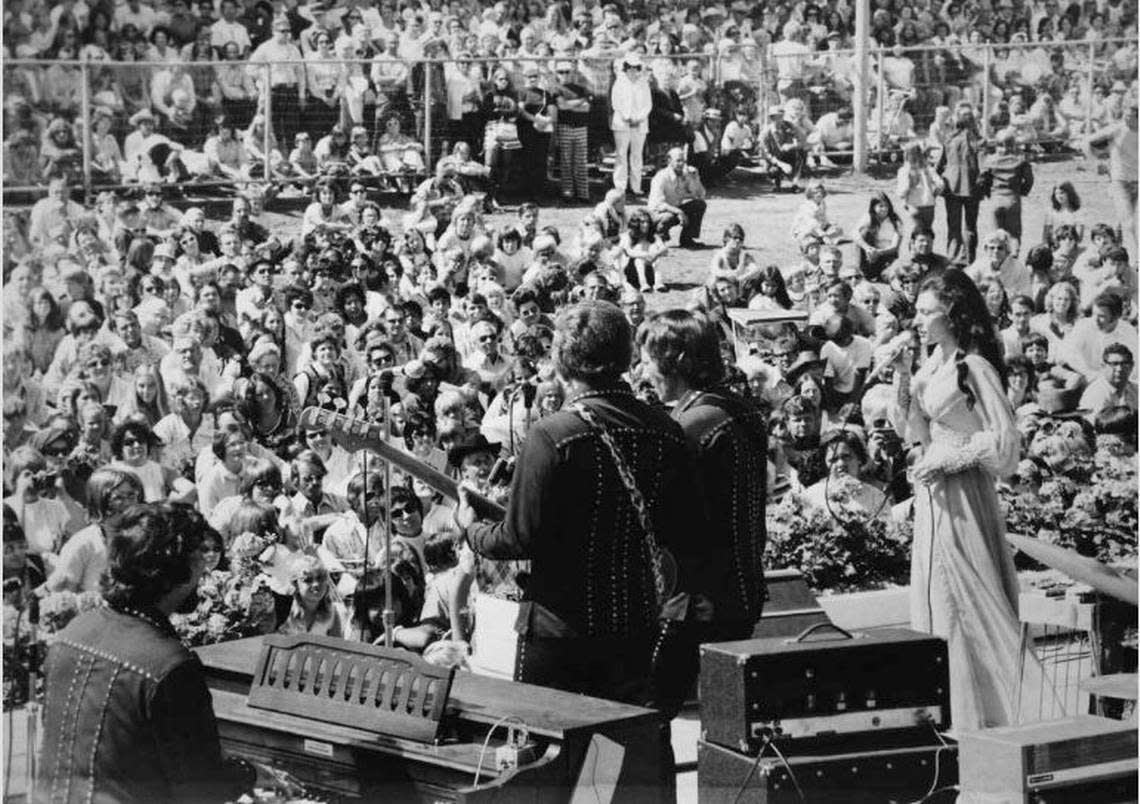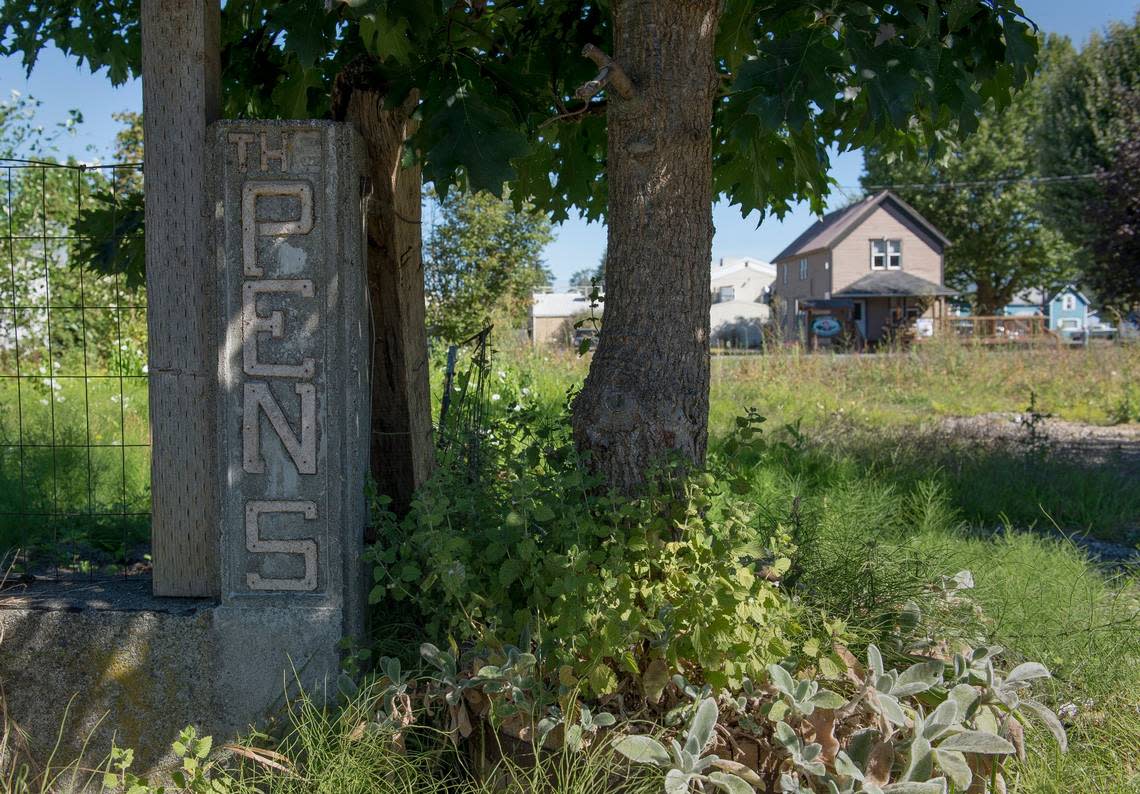Country music star Loretta Lynn, who started family, musical career in Whatcom, dies at 90
This is a developing story. Check back to bellinghamherald.com for updates.
To sign up for breaking news alerts, click here.
Loretta Lynn, the Kentucky coal miner’s daughter whose frank songs about life and love as a woman in Appalachia pulled her out of poverty and made her a pillar of country music, has died. She was 90.
In a statement provided to The Associated Press, Lynn’s family said she died Tuesday at her home in Hurricane Mills, Tennessee.
“Our precious mom, Loretta Lynn, passed away peacefully this morning, October 4th, in her sleep at home in her beloved ranch in Hurricane Mills,” the family said in a statement. They asked for privacy as they grieve and said a memorial will be announced later.
Lynn started her family and musical career in Whatcom County, living in Custer from 1950, when she was young and pregnant, until 1961, when her first hit song climbed the charts. She returned to the region three times for performances at the Northwest Washington Fair in Lynden, visits that included reunions with old friends and acquaintances from her years in Whatcom County when she started her family and her musical career.
Lynn had fans around the country and especially in Kentucky, where she was the young, poor daughter of a coal miner. But Whatcom County held a special place in her heart, and Whatcom County loved her right back.

Lynn grew up in Butcher Hollow, Kentucky, but lived in Custer with her husband, Mooney, for 11 crucial years — from when she was 14 and pregnant, until 1961, soon after she recorded her first hit, “I’m a Honky Tonk Girl.” Her national fame took lasting hold with the 1976 appearance of her bestselling memoir, “Coal Miner’s Daughter,” and the 1980 biopic starring Oscar-winner Sissy Spacek.
Lynn returned to her Whatcom roots for much-anticipated, sold-out appearances at the Northwest Washington Fair in Lynden in 1974, 1982 and 1998. She was scheduled to perform in 2011, too, but canceled due to knee surgery.
Lynn was seven months pregnant when she and Mooney took the train cross-country to Whatcom County. While Mooney found jobs — he worked as a logger, in agriculture, and as an auto mechanic — she had four kids; earned money by cleaning houses and picking strawberries; and, when she had a bit of spare time, practiced on her $17 guitar and sang along to the radio.
She learned her way around the kitchen, too, winning 17 blue ribbons at the Lynden fair for canning fruits and vegetables, and $25 for winning a talent show at the fair.
In 1960, at Mooney’s urging, she sang onstage for the first time, performing with a band, the Westerners, at a dance at Delta Grange hall. More local gigs followed, notably at Bill’s Tavern in Blaine with her own band, Loretta’s Trailblazers.
Lynn began writing songs, too. She recorded “I’m a Honky Tonk Girl” in Los Angeles, and when the song hit No. 14 on Billboard’s country chart, it was time to move for her family to move to Nashville, where joined the cast of the Grand Ole Opry and went on to became a top country star.

Many physical markers of Lynn’s time in Whatcom County are gone, including Bill’s Tavern and her residences on Loomis Trail and Birch Bay-Lynden roads. But the memories and stories live on.
Years ago, Darlene Little of Deming — who knew Lynn from their early days performing in the county — traveled to Canada to see Lynn perform. Backstage, Little’s daughter, Laurie, held back, too shy to give her musical idol a hug.
Lynn knew that the young girl dreamed of becoming a singer herself, so she planted a big kiss on the girl’s check. As the dazed girl walked away, a tooth came loose on the same side as her lipstick memento.
“She kissed me on the cheek and my tooth fell out. From that moment on, I knew Loretta was magic,” Laurie Lee Lewis, who grew up to become a singer and songwriter in Deming, told The Bellingham Herald in 2011.
During Lynn’s 1998 appearance at the fair in Lynden, a Bellingham fan, Bobby Wyman, who had bone cancer, got a special wish when his ambulance parked near Lynn’s bus so he could hear her perform. After the show, Lynn came by to visit Wyman. They chatted about loss — Lynn’s husband Mooney had died two years earlier — while Lynn held Wyman’s hand and stroked his cheek.
“I only have a few days left,” Wyman told her.
“Now you just let God take care of this, honey,” she told him. “He’s the one who knows when it’s time.”
As a songwriter, Lynn crafted a persona of a defiantly tough woman, a contrast to the stereotypical image of most female country singers. The Country Music Hall of Famer wrote fearlessly about sex and love, cheating husbands, divorce and birth control and sometimes got in trouble with radio programmers for material from which even rock performers once shied away.
Her biggest hits came in the 1960s and ‘70s, including “Coal Miner’s Daughter,” “You Ain’t Woman Enough,” “The Pill,” “Don’t Come Home a Drinkin’ (With Lovin’ on Your Mind),” “Rated X” and “You’re Looking at Country.”
She was known for appearing in floor-length, wide gowns with elaborate embroidery or rhinestones, many created by her longtime personal assistant and designer Tim Cobb.
Her honesty and unique place in country music was rewarded. She was the first woman ever named entertainer of the year at the genre’s two major awards shows, first by the Country Music Association in 1972 and then by the Academy of Country Music three years later.
“It was what I wanted to hear and what I knew other women wanted to hear, too,” Lynn told the AP in 2016. “I didn’t write for the men; I wrote for us women. And the men loved it, too.”
The Associated Press contributed to this story.
